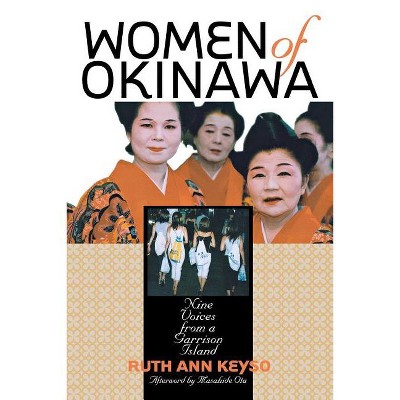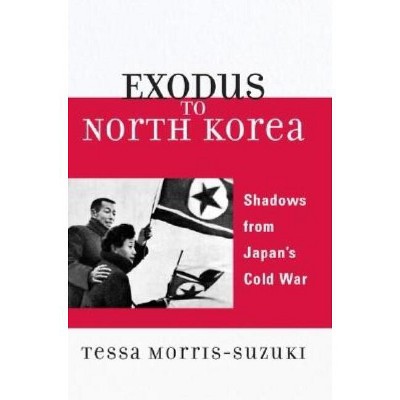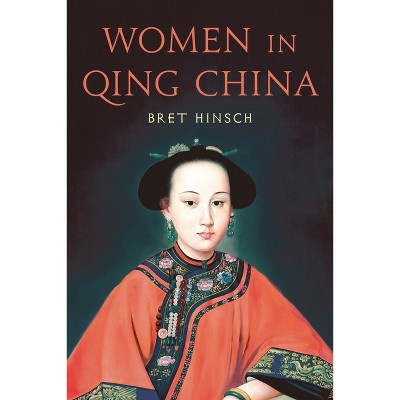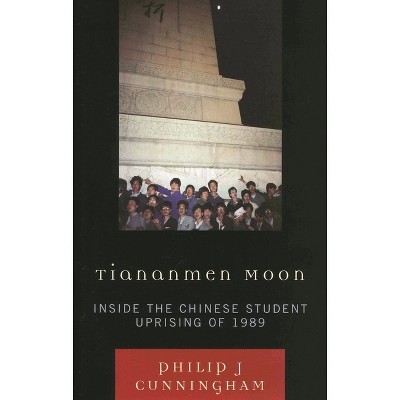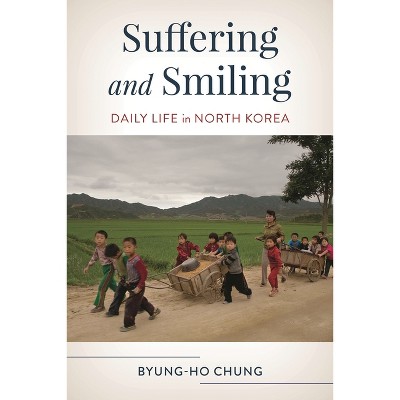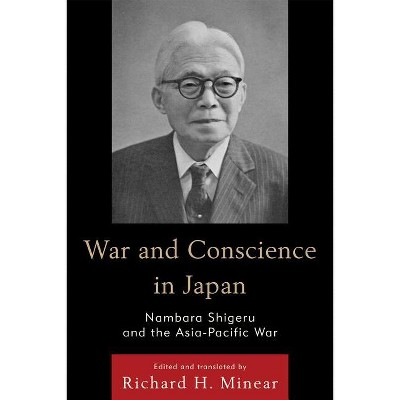Identity and Resistance in Okinawa - (Asian Voices) by Matthew Allen (Paperback)

About this item
Highlights
- The keystone of U.S. security in East Asia, Okinawa is a troubled symbol of resistance and identity.
- About the Author: Matthew Allen is senior lecturer in Japanese history in the School of Asian Studies at the University of Auckland.
- 288 Pages
- History, Asia
- Series Name: Asian Voices
Description
About the Book
The keystone of U.S. security in East Asia, Okinawa is a troubled symbol of resistance and identity. In this perceptive ethnography, Matthew Allen draws on extensive fieldwork, interviews, and historical research to provide an original exploration of identity construction. The...Book Synopsis
The keystone of U.S. security in East Asia, Okinawa is a troubled symbol of resistance and identity. Ambivalence about the nature of Okinawan identity lies behind relations between Japan, the United States, and Okinawa today. Fully one-fifth of Okinawa's land is occupied by a foreign military power (the United States), and Okinawans carry a disproportionate responsibility for Japanese and U.S. security in the region. It thus figures prominently in the re-examination of key questions such as the nature of Japan, including the debate over Japanese "purity" and the nature of Japanese colonialism. Yet underneath the rhetoric of the "Okinawa problem" lies a core question: who are Okinawans?
In contrast to approaches that homogenize Okinawan cultural discourse, this perceptive historical ethnography draws attention to the range of cultural and social practices that exist within contemporary Okinawa. Matthew Allen's narrative problematizes both the location of identity and the processes involved in negotiating identities within Okinawa. Using the community on Kumejima as a focus, the author describes how people create and modify multitextured and overlapping identities over the course of their lives. Allen explores memory, locality and history; mental health and shamanism; and regionalism and tourism in his richly nuanced study. His chapter on the Battle of Okinawa, which opens the book, is a riveting, fresh analysis of the battle in history and memory. His analysis of yuta (shamans) opens new terrain in rethinking the relationship between the traditional and the modern. Based on fieldwork, interviews, and historical research, Allen argues that identity in Okinawa is multivocal, ambivalent, and still very much "under construction." With its interdisciplinary focus, anthropologists, sociologists, and historians alike will find this book an important source for understanding broad questions of identity formation in the contexts of national, ethnic, cultural, historical and economic experience.Review Quotes
"A pleasure to read....An important voice in the discourse on Okinawa. The author deserves special credit for his original and innovative approach towards Okinawan studies." --H-Asia
"The best English-language study to date in depicting the diversity and complexity within Japan's southernmost prefecture." --The Journal of Japanese Studies "Timely and interesting." --Bulletin of the School of Oriental and African Studies "Allen has set an innovative methodological agenda....[A] fine ethnographic narrative filled with vivid descriptions. An enjoyable read." --Monumenta NipponicaA pleasure to read....An important voice in the discourse on Okinawa. The author deserves special credit for his original and innovative approach towards Okinawan studies.
Allen has set an innovative methodological agenda....[A] fine ethnographic narrative filled with vivid descriptions. An enjoyable read.
The best English-language study to date in depicting the diversity and complexity within Japan's southernmost prefecture.
Timely and interesting.
About the Author
Matthew Allen is senior lecturer in Japanese history in the School of Asian Studies at the University of Auckland.


